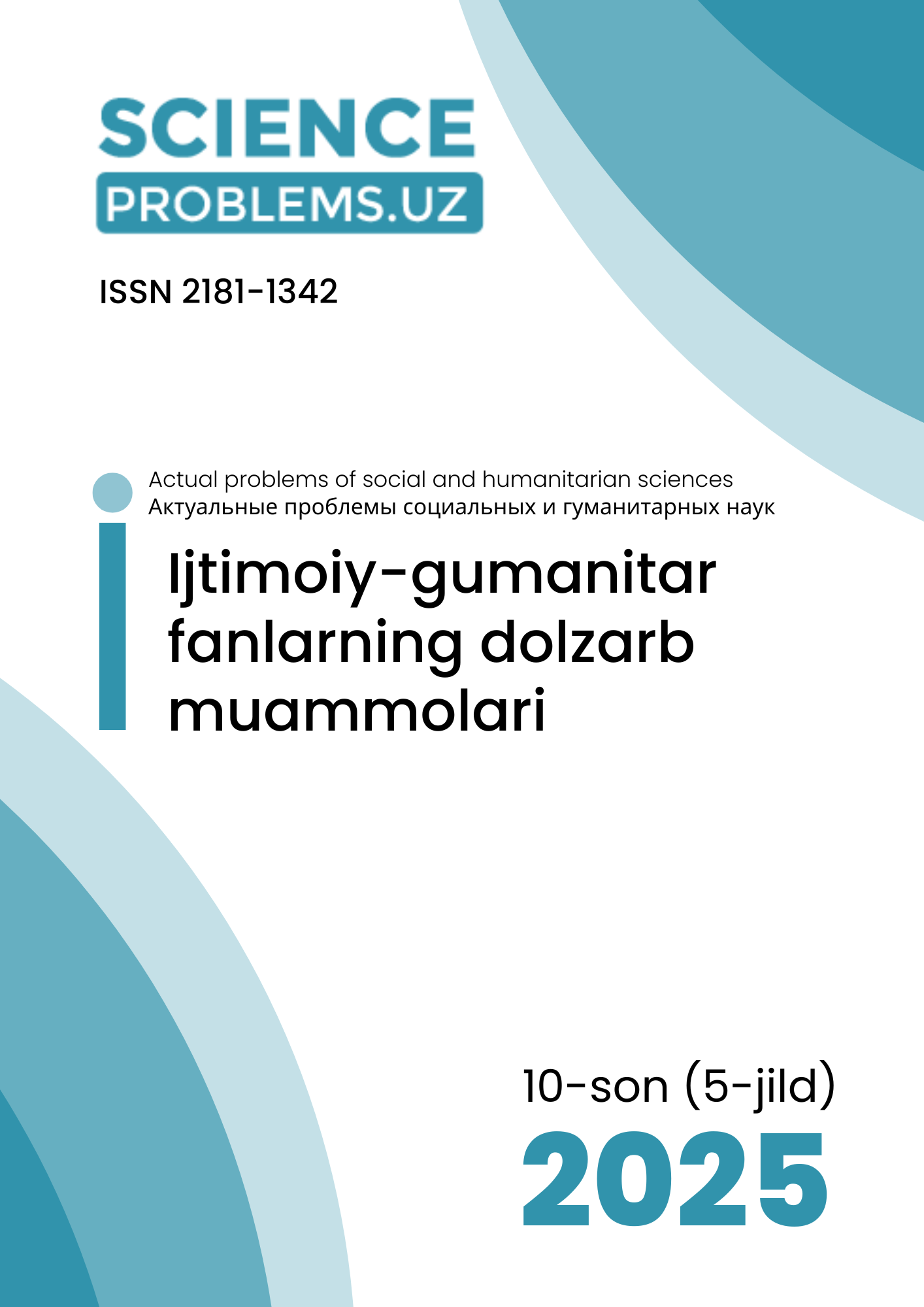CONSUMPTION STANDARDS OF THE POPULATION IN A CONSUMER SOCIETY
DOI:
https://doi.org/10.47390/SPR1342V5I10Y2025N37Keywords:
consumer society, consumption norm, post-industrial society, goods and services, Christian and Muslim consumer ethics, frugality, income and rational spending.Abstract
The article presents a theoretical analysis of the transformation of consumer attitudes and orientations of the population in a consumer society from sociological, economic, and psychological perspectives. The development of society through industrialization and the unprecedented growth of production has intensified competition among enterprises in the sale of goods. This situation generates a need in socio-economic life for management that corresponds to the process of consumer society development, as well as for the valorization of consumption norms of the population. At the same time, in the formation of a consumer society, producers increasingly employ various manipulative methods to stimulate consumer behavior. As a result, specific consumer habits are formed in people’s behavior and mindset, such as strolling through markets and shopping malls, observing and purchasing goods. In foreign scientific literature, the definitions and interpretations of consumer society were comprehensively developed by Erich Fromm and Jean Baudrillard. In 20th-century economic theory, scholars conducted scientific analyses of the three waves of industrial development of the consumer society. In this sense, the aim of the article is to bring into scholarly discussion the concept of the “consumption norm” as a social value in the context of the New Uzbekistan, taking into account its ethno-confessional characteristics. Furthermore, the article reveals the influence of the consumer society on the moral and spiritual profile of the individual in the development of society.
References
1. Sapozhnikov E.I., G‘arb mamlakatlaridagi iste’mol jamiyati // Falsafa savollari. -2007. -№ 10. В. 53-63b.
2. Marks K., Engels F. To‘liq asarlar. 39 jildda / 2-nashr. jild. 12. Moskva: Siyosiy adabiyot nashriyoti, 1955-1974, 709-738b.
3. Veber M., Iqtisodiyot tarixi: Umumiy ijtimoiy va iqtisodiy tarixga oid insho. Petrograd: Nauka i Shkola, 1923, 240b.
4. Veblen T., Bo‘sh vaqt sinfi nazariyasi: institutlarni iqtisodiy o‘rganish. -Nyu-York: Makmillan kompaniyasi, 1899. -184b.
5. Simmel J., Ijtimoiy farqlash: sotsiologik va psixologik tadqiqotlar / Nemis tilidan N.N.Vokach, I.A.Ilyin tomonidan tarjima qilingan; Ed. B.A.Kistyakovskiy. Moskva: Sabashnikov nashriyoti, 1909,323b.
6. Burdiye P., Gapirish nimani anglatadi: til almashinuvi iqtisodiyoti, A. Fayard, 1982. -243b.
7. Bodriyard Dj., Imkonsiz almashinuv / Tr. fr dan. K. Tyorner. Nyu-York: Verso Books., 2001,160b.
8. Fromm E., Inson yolg‘iz / URL: https://monocler.ru/chelovek-odinokerih-fromm/ (дата обращения: 03.02.2017).
9. Bekker G., Inson xatti-harakati: Iqtisodiy yondashuv. Moskva: Oliy Iqtisodiyot maktabi nashriyoti, 2003, 672b.
10. Lankaster K., Iste’molchi talabi: yangi yondashuv. Nyu-York: Kolumbiya universiteti. Pr., 1971, 177b.
11. Stigler J., Axborotning iqtisodiy nazariyasi // Iqtisodiy fikrdagi belgilar. jild. 2. Firma nazariyasi / Ed. tomonidan V.M. Galperin. Sankt-Peterburg: Iqtisodiyot maktabi, 2000,507-529b.
12. Dyuzenberri J., Daromadni tejash va iste’molchi xulq-atvori nazariyasi. Kembrij, MA: Garvard universiteti nashriyoti, 1949. 152b.
13. Fridman M., Iste’mol funktsiyasi nazariyasi. Princeton, NJ: Princeton University Press, 1957. 243b.








